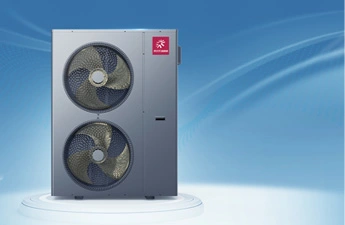By utilizing environmental thermal energy, AMITIME heat pump China manufacturer offers heat pumps wholesale that can provide efficient heating and cooling, reducing energy consumption.
By utilizing renewable energy, heat pump products reduce the demand for fossil fuels and help reduce environmental pollution.
Heat pump products, such as SU series hydronic wall mounted fan coil units, have low noise during operation, providing users with a quiet and comfortable living environment.
With the help of intelligent control and adaptive functions, heat pump products can provide customized heating, cooling, and hot water services according to user needs, improving the user experience.

The trend of future heating systems will focus more on sustainability and intelligence. New technologies such as heat pumps, solar energy, and geothermal energy will be more widely applied to reduce dependence on fossil fuels. Intelligent control and adaptive algorithms will improve system efficiency, while also improving user experience. These trends will drive heating systems towards a more environmentally friendly and intelligent direction.
Air Source Heat Pump for Indoor Swimming Pool
Elon Reeve Musk, Lei Jun Supports Heat Pumps
Amitime Heat Pump Units Set the Longest Record in the Air Source Heat Pump Industry
System Types: Choose between furnaces, boilers, heat pumps, radiant heating, ultra thin hydronic fan coil units, or space heaters based on your needs.
Efficiency Ratings: Look for high AFUE (furnaces/boilers) or HSPF (heat pumps) ratings and Energy Star certification for better efficiency.
Energy Source: Consider natural gas, electricity, oil, propane, or renewable energy based on availability and cost.
Installation and Maintenance Costs: Factor in initial setup costs and ongoing maintenance expenses.
Climate Suitability: Select systems that perform well in your local climate (e.g., furnaces for cold climates, heat pumps for mild climates).
Home Size and Insulation: Ensure the system is appropriately sized for your home and consider the quality of insulation to reduce heating load.
Environmental Considerations: Opt for systems with lower carbon footprints, such as those using renewable energy.
Rebates and Incentives: Check for government or utility rebates and incentives to offset costs and promote energy efficiency.